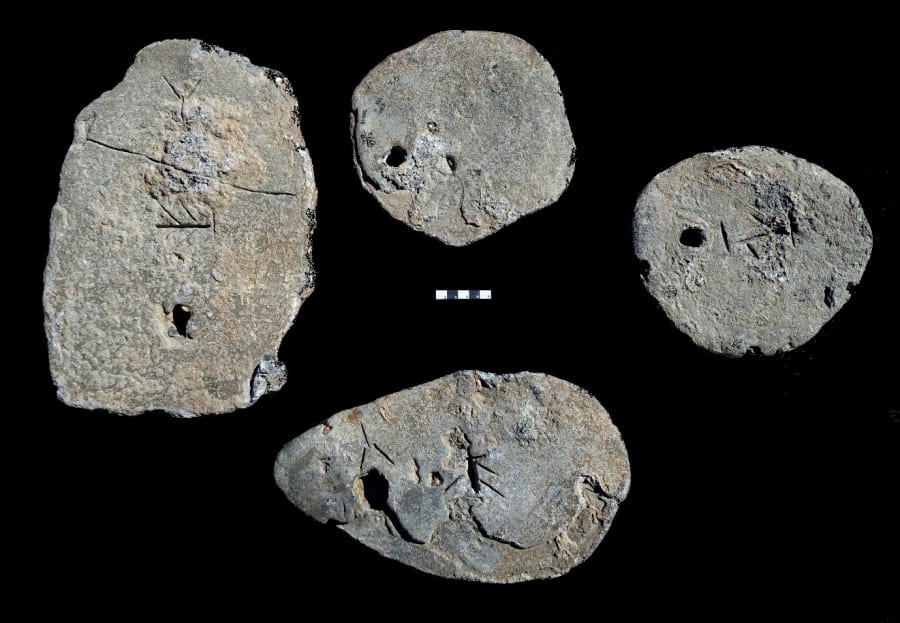Ship sunk 3,200 years ago near Caesarea reveals unknown ancient trade links
Lead ingots found in shipwrecked cargo prove contacts between Cyprus and Sardinia in late Bronze Age

A new study released from Hebrew University of Jerusalem's Institute of Archaeology sheds light on commercial and diplomatic life in the Mediterranean some 3,200 years ago. Lead ingots and stone anchors found among shipwrecked cargo off the coast of Israel reveal previously unknown trading links among distant countries.
Professor Naama Yahalom-Mack collaborated with Professor Yigal Erel at Hebrew University Institute of Earth Sciences to determine the source of four lead ingots that were on the sunken ship near the port of Caesarea.
By studying the source of the lead and comparing their findings to other archaeological artifacts from across the Mediterranean Sea, the researchers were able to prove that the ingots were made of lead mined in the central Mediterranean island of Sardinia.
They were incised with Cypro-Minoan markings which are known to have been in use in Cyprus during the Late Bronze Age. Accordingly, the researchers concluded that there were vast commercial ties between the two populations with the purpose of transporting raw material.
Professor Yahalom-Mack says this study teaches us about the active role that the Cypriots played in trade during the same era, and how far they were willing to go – Cyprus and Sardinia are located more than 2,500 kilometers (1,550 miles) from one another – in order to import lead, used to create luxury goods.
"We think that along with lead, they also imported tin – a sought-after metal in Cyprus and the surrounding area for making bronze. These three metals – copper, lead, and tin – were sold to port cities along the coastlines, including the shores of today's Israel," she added.
The findings were published in the February 2022 edition of the Journal of Archaeological Science.

Tal Heinrich is a senior correspondent for both ALL ISRAEL NEWS and ALL ARAB NEWS. She is currently based in New York City. Tal also provides reports and analysis for Israeli Hebrew media Channel 14 News.














